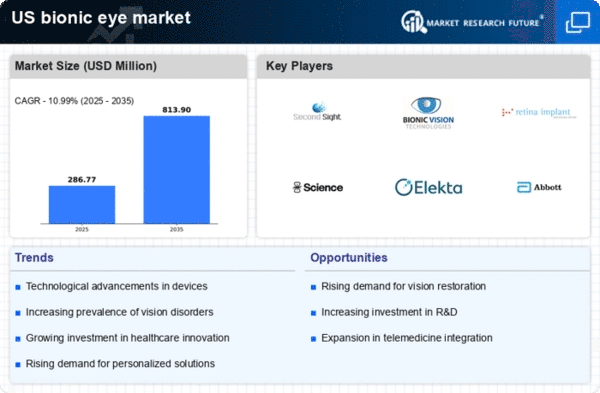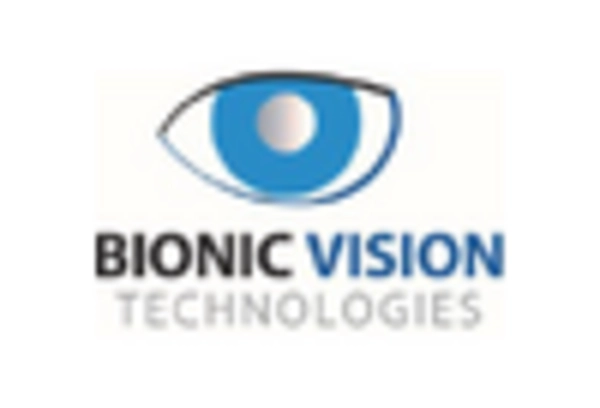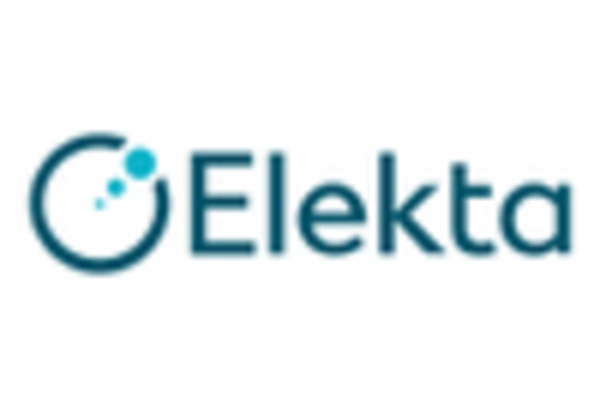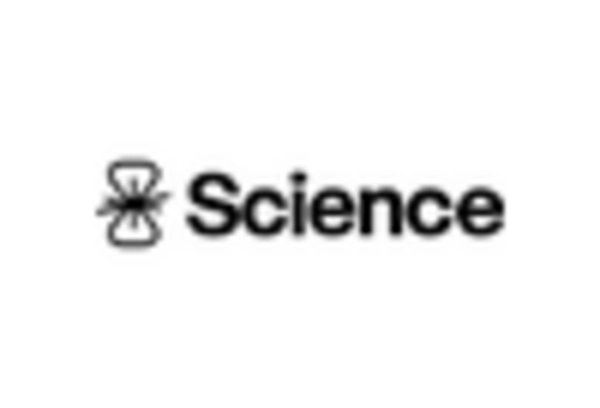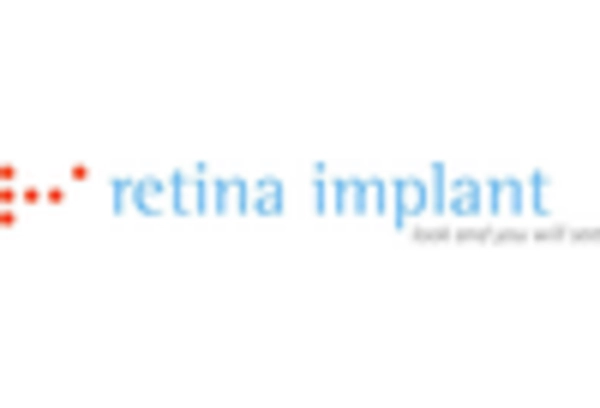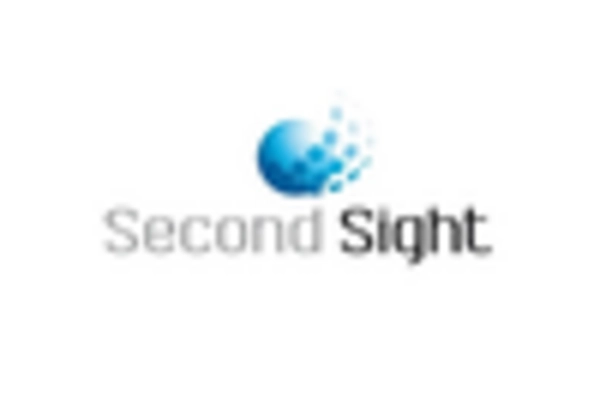Rising Prevalence of Eye Disorders
The increasing incidence of eye disorders, particularly age-related macular degeneration and diabetic retinopathy, is driving the bionic eye market. In the US, it is estimated that over 3 million individuals suffer from vision impairment due to these conditions. This growing patient population necessitates innovative solutions, such as bionic eyes, to restore vision. The bionic eye market is likely to experience substantial growth as healthcare providers seek advanced technologies to address these challenges. Furthermore, the aging population, projected to reach 73 million by 2030, will further amplify the demand for bionic eye solutions. As a result, the bionic eye market is positioned to expand significantly in response to these demographic shifts.
Supportive Funding and Grants for Research
The bionic eye market is benefiting from increased funding and grants aimed at advancing research in vision restoration technologies. Government initiatives and private sector investments are providing financial support for innovative projects. In 2025, funding for bionic eye research is projected to exceed $300 million, facilitating the development of new products and technologies. This financial backing is crucial for the bionic eye market, as it enables researchers to explore novel approaches and improve existing solutions. As funding continues to flow into this sector, the potential for breakthroughs in bionic eye technology is promising, likely leading to enhanced product offerings.
Collaborations Between Industry and Academia
Collaborative efforts between industry players and academic institutions are fostering innovation in the bionic eye market. These partnerships are essential for translating research findings into practical applications. By combining resources and expertise, stakeholders can accelerate the development of new technologies. In 2025, it is anticipated that collaborative projects will account for over 40% of advancements in the bionic eye market. This synergy not only enhances product development but also ensures that solutions are aligned with patient needs. As these collaborations continue to thrive, the bionic eye market is poised for significant growth, driven by a steady stream of innovative solutions.
Technological Innovations in Vision Restoration
Recent advancements in technology are revolutionizing the bionic eye market. Innovations such as retinal implants and neuroprosthetics are enhancing the functionality and effectiveness of bionic eyes. For instance, the development of wireless communication systems allows for real-time data transmission, improving user experience. The bionic eye market is witnessing a surge in research and development investments, with funding reaching approximately $500 million in 2025. This influx of capital is likely to accelerate the introduction of cutting-edge products, making vision restoration more accessible. As technology continues to evolve, the potential for improved visual acuity and user satisfaction in the bionic eye market is substantial.
Growing Awareness and Acceptance of Bionic Solutions
Public awareness regarding the benefits of bionic solutions is increasing, positively impacting the bionic eye market. Educational campaigns and success stories of individuals who have regained vision through bionic eyes are fostering acceptance among potential users. This shift in perception is crucial, as it encourages individuals with vision impairments to consider bionic options. The bionic eye market is likely to benefit from this growing acceptance, as more patients seek consultations and treatments. Additionally, healthcare professionals are becoming more informed about these technologies, further driving demand. As awareness continues to rise, the bionic eye market is expected to expand, reaching new demographics.
.png)

